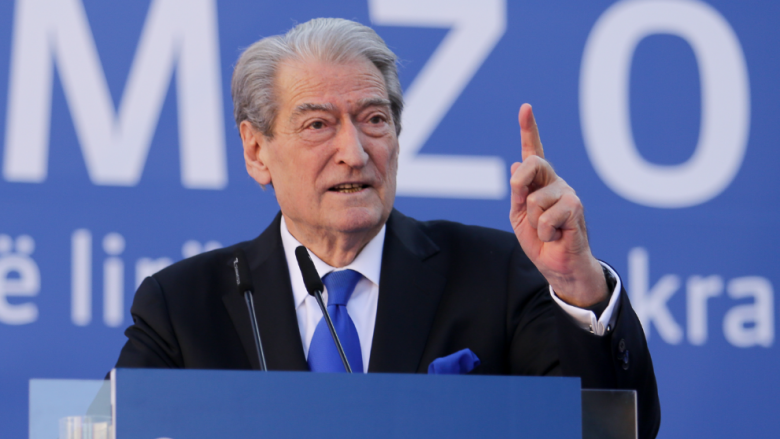U.S. reaffirms position on non-engagement with Sali Berisha

The United States has reiterated its stance of non-engagement with Sali Berisha or any individuals designated as non grata by the State Department. The announcement follows a meeting between the U.S. Chargé d’Affaires, Nancy VanHorn, and a group of opposition MPs, during which the Embassy emphasized the critical importance of a healthy opposition in a functioning democracy.
Why is this important: The statement comes just five months before Albania’s parliamentary elections, scheduled for May 11, 2025, signaling the U.S. position that Berisha, the leader of the opposition Democratic Party, cannot be seen as a governing alternative for the country. The declaration also challenges Berisha’s recent claims that a Trump administration, if elected in the U.S., would reconsider his non grata status. Historically, such designations for major corruption cases are rarely overturned.
Context: Chargé d’Affaires Nancy VanHorn held discussions with opposition MPs, including Jorida Tabaku, Oerd Bylykbashi, Tomorr Alizoti, Helidon Bushati, and Kreshnik Çollaku. The U.S. Embassy underscored the value of opposition voices in Albania’s political landscape while firmly rejecting any cooperation with individuals implicated in significant corruption.
In the statement issued after the meeting, VanHorn highlighted the importance of constructive political engagement and the role of opposition in democracy:
“A healthy opposition is a critical part of a vibrant democracy. I value the opportunities I’ve had in recent months to meet with various opposition representatives to hear a range of perspectives on the challenges facing the Albanian people, concerns about the upcoming electoral environment, and how Albania can build a better future.”
VanHorn reaffirmed the longstanding U.S. position: “We do not engage with individuals designated for involvement in significant corruption.”
This development follows the May 2021 designation of Berisha and his family as non grata by U.S. Secretary of State Antony Blinken for major corruption and undermining democracy. A year later, the United Kingdom imposed similar sanctions on Berisha.
What’s next: The U.S. Embassy’s clear and firm stance underscores its continued role as a critical observer of Albania’s political process and signals to voters the importance of integrity in leadership. As Albania heads toward the 2025 elections, Berisha’s legal and political challenges remain significant hurdles, with broader implications for the opposition’s role in the democratic process.


